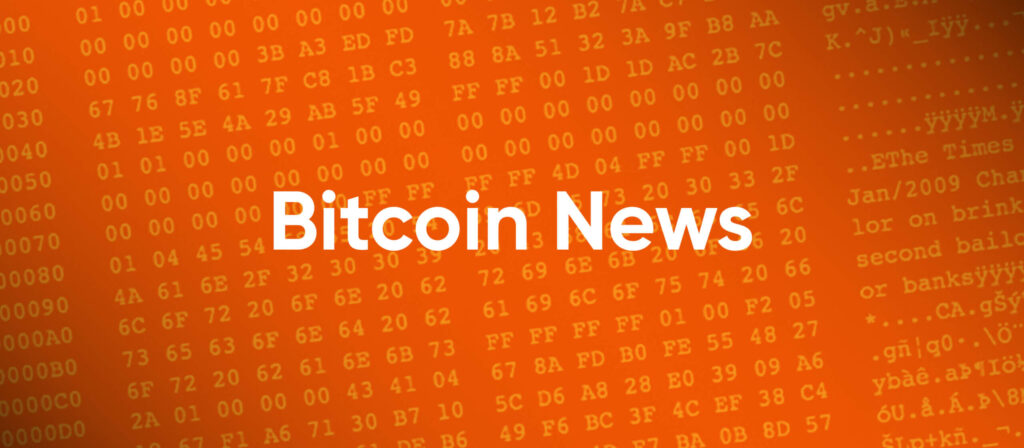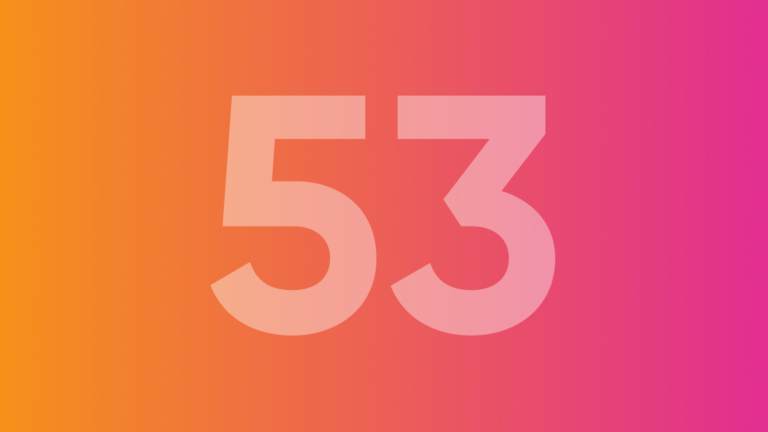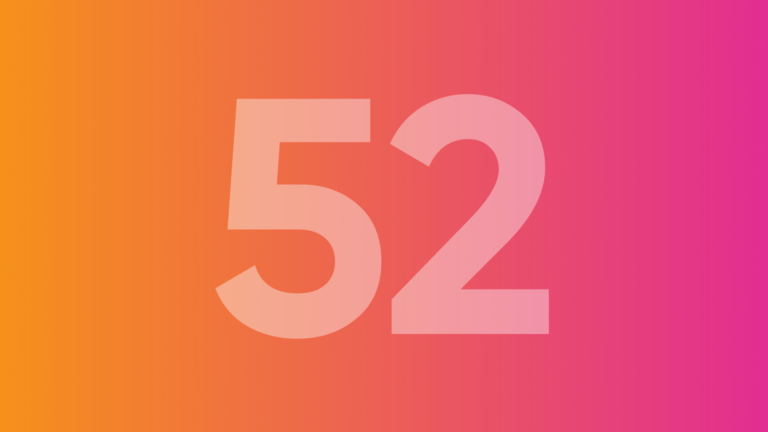Good morning, readers!
In Venezuela — recently home to one of the most catastrophic episodes of hyperinflation in history — dictator Nicolás Maduro fraudulently claimed victory in the country’s presidential election. The opposition party asserted that their candidate, Edmundo González Urrutia, earned more than twice as many votes as Maduro. International observers condemned the outcome as rigged, and protests have broken out across the country. If Maduro remains in power, Venezuelans will face a worsening humanitarian crisis and continued mass exodus in search of financial and political freedom.
Halfway across the globe, Ethiopia’s government drastically devalued its currency, the birr, as a condition for securing over $10 billion in loans from the International Monetary Fund and World Bank. This is expected to worsen inflation and further economic instability in a country of 120 million people. In Russia, new laws legalize some cryptocurrency mining but require registration and licensing from state-controlled institutions. HRF’s nonprofit Bitcoin adoption lead, Anna Chekhovich, warns these laws will expand financial monitoring and consolidate Vladimir Putin’s power over digital assets. They may also be used to target activists, individuals, and NGOs opposed to the government.
On the technology front, Lightning Labs released Taproot Assets on Lightning, a development that could make it possible for Bitcoin wallets to quickly, cheaply, and more privately trade assets such as stablecoins. Meanwhile, the popular VPN and email provider Proton launched a self-custodial Bitcoin wallet, providing access to decentralized currency for the platform’s 75 million-person user base.
We conclude by sharing all presentations featured in this year’s Oslo Freedom Forum Financial Freedom Track. Speakers, including activists, human rights defenders, software developers, and social entrepreneurs, discuss Bitcoin as a tool for financial empowerment in Eastern Africa, the human rights implications of central bank digital currencies, the importance of financial privacy in an increasingly surveilled world, and more.
Now, let’s dive right in!
The Financial Freedom Report is a newsletter focusing on the role currency and banking play in the civil liberties and human rights struggles of those living under authoritarian regimes. We also spotlight new tools and applications that can help individuals protect their financial freedom.

Venezuela | Maduro Rigs Election to Prolong Regime
On Sunday, millions of Venezuelans voted in the most anticipated presidential election in more than a decade, only to witness a historic moment of electoral fraud. In a shameless and predictable move, the National Electoral Council (CNE), loyal to dictator Maduro, announced he was re-elected with 51.2% of the votes. Meanwhile, the opposition campaign led by presidential candidate Edmundo González Urrutia and María Corina Machado organized a well-coordinated effort to collect all voting backup information to sustain the official result of the presidential election. With 81.21% of the official ballot tally sheets collected and made public on two websites — one where the world can see the latest numbers and another where Venezuelans can verify their actual votes — the opposition has credibly shown its wide-margin victory with 67% of the national vote versus Maduro’s 30%. The electoral fraud fuelled nationwide anger that led to protests and international leaders calling for the regime to recognize the will of the Venezuelan people. Under Maduro’s rule, Venezuelans routinely face human rights violations and severe economic hardships, including hyperinflation, currency controls, expropriation of private property, and government control over banks. Once a wealthy and thriving nation, Venezuela has crumbled under the rule of authoritarianism and created the world’s largest refugee crisis.
Russia | Introduces New & Repressive Digital Asset Laws
Russia’s Federal Assembly recently passed two new digital asset laws with significant implications for Russians’ financial freedom. The first law legalizes cryptocurrency mining, and the second establishes an experimental framework for cross-border digital currency transactions. But these laws hint at troubling implications. While the first law permits mining, it confines it to mining entities registered with the Ministry of Digital Development and grants executive supervisory powers to the Central Bank of Russia. It also includes a ban on digital asset advertising. The second law, effective September 2024, mandates that all digital asset platforms obtain licenses from the central bank, which will oversee and collect detailed transaction data. HRF’s nonprofit Bitcoin adoption lead, Anna Chekhovich, warns that these laws place Bitcoin miners and exchanges under the control of the Central Bank while monitoring and targeting activists and nonprofit organizations that rely on digital assets like Bitcoin. Putin is consolidating control over digital assets while undermining financial freedom in Russia and moving forward with central bank digital currencies (CBDCs).
Ethiopia | Currency Devaluation to Secure IMF Loan
Ethiopia’s authoritarian government announced a drastic devaluation of its currency, the birr, potentially eroding its value by another 50%. The decision follows negotiations with the International Monetary Fund (IMF) and World Bank, which made the devaluation a condition for providing over $10 billion in loans. While the regime frames this move as part of a “Macro-Economic Policy Implementation” that addresses trade imbalances and stimulates private sector growth, it raises serious concerns about Ethiopians’ financial freedom. They are likely to face skyrocketing inflation and diminished purchasing power, all while their regime gets bailed out. The birr has already fallen by 30% against the US dollar in a system where government officials enjoy dollar access while the public, especially outside of the cities, is forced to use a collapsing currency.
Egypt | Increases Fuel Prices and Forces Disappearance of Journalists
The Sisi dictatorship in Egypt raised fuel prices by 15% following a new agreement with the IMF to trim state subsidies and “stabilize” the economy. This increase will see millions of Egyptians paying more for essential items, while the military gets more dollars to purchase weapons. It also follows the first increase in subsidized bread prices in decades, which resulted in the cost of bread quadrupling. In addition to experiencing financial strain, Egyptians are witnessing a crackdown on press freedom. Recently, the regime carried out nighttime raids on the homes of journalist Khaled Mamdouh and political cartoonist Ashraf Omar, leading to the enforced disappearances and arbitrary detentions. Together, these actions signal the lengths dictator Abdel Fattah El-Sisi will go to cling to power despite widespread public discontent with ongoing financial hardships.
United Arab Emirates | Jails Bangladeshi Protesters
A United Arab Emirates (UAE) court sentenced 57 Bangladeshis to long prison terms for protesting against their own government. Three received life sentences for “inciting riots in several streets across the UAE on Friday,” and 54 were jailed for 10 and 11 years. As the third largest expatriate group in the UAE, many Bangladeshis flee the financial crisis back home, only to face exploitation and repression in the UAE. More than a million Bangladeshi migrant workers endure serious labor abuses like wage theft, high recruitment fees, restricted job mobility, and passport confiscation. Despite its progressive image, the UAE routinely bans protests and represses dissent. The introduction of a central bank digital currency (currently in a pilot phase) is expected to enhance the regime’s ability to monitor and suppress protests through financial repression.

BitAxe | Mines First Solo Bitcoin Block
BitAxe, an open-source Bitcoin mining device capable of roughly 500 giga hashes per second, mined its first-ever solo block on July 24 (worth around $206,000). Despite having only a 1 in 1.1 billion chance of mining a block in the network’s 10-minute time window, this solo miner’s success highlights the potential reward of small-scale home mining operations. The Bitaxe device aims to decentralize Bitcoin mining by making it more accessible without relying on mining pools or large-scale industrial operations, thus promoting a more distributed and resilient Bitcoin network. If millions of people were to run BitAxes, power could be taken away from large corporations and governments running large mining operations and put back into the hands of individuals. You can learn more about BitAxe here.
Fedi | Announces Save the Children Collaboration
Fedi, a company that leverages Bitcoin and ecash technology to empower communities in the Global South, and Save the Children, a global humanitarian organization, partnered to use Bitcoin to enhance cash and voucher assistance (CVA) delivery in the Philippines. Participants will learn about Bitcoin, how to transact with it inside the Fedi app, and how to exchange it for local currency. Unlike traditional charity work, this new initiative will empower communities to decide how to use their funds for immediate and long-term needs. The pilot program will also explore community-secured wallets to promote financial inclusion and self-custody.
Lightning Labs | Releases Taproot Assets on Lightning
Lightning Labs, a Lightning Network software development company, released Taproot Assets, the first multi-asset Lightning protocol on mainnet. This protocol allows assets to be minted on Bitcoin and sent via the Lightning Network instantly and with lower fees. In particular, we’ll see stablecoins (currencies pegged to a fiat currency that have grown in popularity over the last five years) issued and integrated within the Lightning Network. “This step forward will give users access to the world’s currencies on an open, interoperable payments network while routing through bitcoin liquidity, making bitcoin the global routing network for the internet of money,” Ryan Gentry, director of business development at Lightning Labs, said. You can learn more about this release in the protocol’s GitHub repository.
Proton | Releases Open-Source Bitcoin Wallet
Proton, the privacy-focused company known for Proton Mail, launched Proton Wallet. This self-custodial Bitcoin wallet prioritizes privacy. It uses strong encryption and offers accessible recovery methods, ensuring users maintain their financial autonomy. One notable feature, Bitcoin via Email, allows users to verify an email instead of copying and pasting lengthy Bitcoin addresses, reducing the risk of errors. Additionally, the wallet generates a pool of Bitcoin addresses, using a different address each time Bitcoin is received from someone using Bitcoin via Email. This increases privacy by making it harder to link transactions to a specific user. Watch this tutorial by Bitcoin educator BTC Sessions to learn how to use the Proton Bitcoin Wallet.
Breez SDK | Implements Liquid Network
Breez, a Bitcoin company focused on advancing the Lightning Network and an HRF grantee, is adding support for the Liquid Network into its Software Development Kit (SDK). Liquid is a Bitcoin sidechain designed to facilitate faster settlements, lower fees, and more confidential transactions. It operates by allowing users to lock their bitcoin in a “peg-in” transaction on the Liquid Network and, in turn, receive Liquid’s token, L-BTC. This can then be used for transactions within the Liquid network. To convert L-BTC back into bitcoin, users execute a “peg out” transaction. It is important to note that Liquid is managed by a federation, meaning it is not a fully permissionless or decentralized network. Learn more about Liquid on Breez SDK here, and learn how to implement the Breez SDK here.
OpenSats | Announces Sixth Round of Grants and Long-Term Support for FIATAJ
OpenSats, a public nonprofit funding free and open-source software and projects, announced its sixth round of grants funding seven open-source projects in the Bitcoin ecosystem. These grants support a variety of initiatives, including advancements in Bitcoin and Cashu wallets, improvements to the Lightning Network, and developments in cryptography. OpenSats also announced long-term grant support (LTS) for fiatjaf, a developer working on Nostr. This LTS grant will enable fiatjaf to continue work on projects, such as nostr-tools, nos2x, go-nostr, khatru, eventstore, njump, loure, wikistr, patch34, nak, gitstr, song, mmm, and promenade. Through sustainable grants, OpenSats aims to support those who diligently work on freedom technologies that ensure freedom and maintain resilient communication and financial systems.
University of Wyoming | Establishes Bitcoin Research Institute
The University of Wyoming (UW) established the UW Bitcoin Research Institute (BRI) to produce high-quality academic research on Bitcoin and integrate it into the university’s curriculum across philosophy, economics, and interdisciplinary courses. Dr. Bradley Rettler, associate professor of philosophy, will serve as director of the institute. He, alongside his co-authors of the book “Resistance Money: A Philosophical Case for Bitcoin,” will lead the BRI in its mission to produce rigorous, peer-reviewed research in the field of Bitcoin. This initiative is poised to elevate the academic discourse around Bitcoin and help provide accurate and reliable information that informs policymakers, journalists, educators, and the public on the benefits of Bitcoin.
Recommended Content
Financial Freedom Track Thread
A new thread on X features the panels, fireside chats, and presentations from the Financial Freedom track at this year’s Oslo Freedom Forum. It covers a range of topics, from the financial and human rights implications of central bank digital currencies (CBDCs) in China and Nigeria to the philosophical and practical aspects of financial freedom through Bitcoin. Key discussions also include the impact of Bitcoin and the Lightning Network on financial inclusion, Bitcoin’s growing adoption in Africa, and Bitcoin’s role in countering financial repression by authoritarian regimes. The thread concludes with a summary of challenges in open-source technology and the importance of supporting open-source contributors. You can delve into conversations by exploring the full thread here.
A Mental Framework for Bitcoin with Christian Keroles
In a recent podcast episode of What Bitcoin Did, host Peter McCormack interviews Christian Keroles, director of Financial Freedom at HRF. Key highlights of the conversation include the virality and volatility of Bitcoin adoption, how understanding Bitcoin requires reframing your mental models, how Bitcoin will reprice the world, as well as the philosophical underpinnings of financial sovereignty. This episode is a profound, behind-the-scenes look at the importance of Bitcoin and how it’s reshaping the world as we know it. If you are someone who struggles to understand the impact of Bitcoin, this episode is worth watching.






